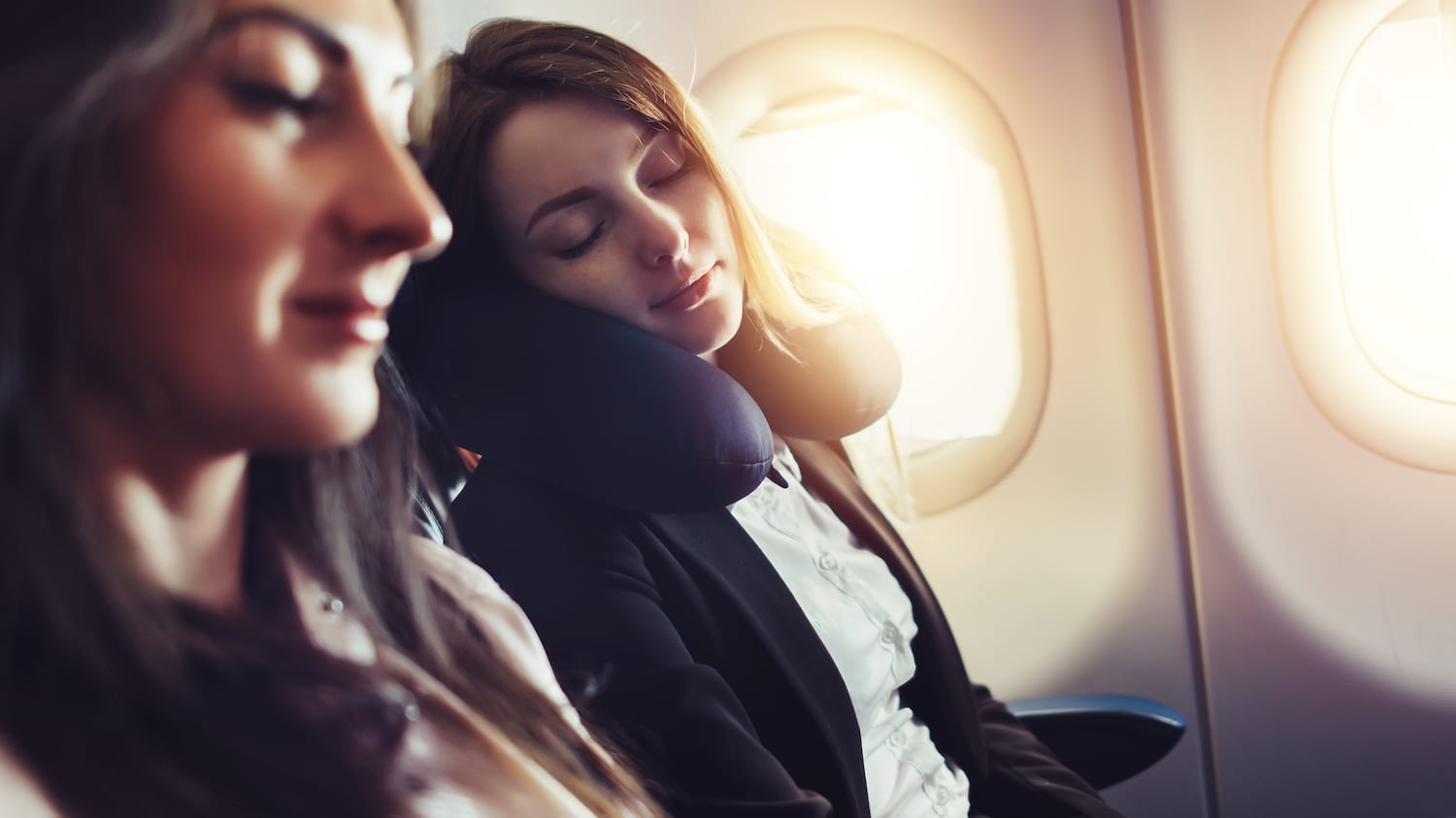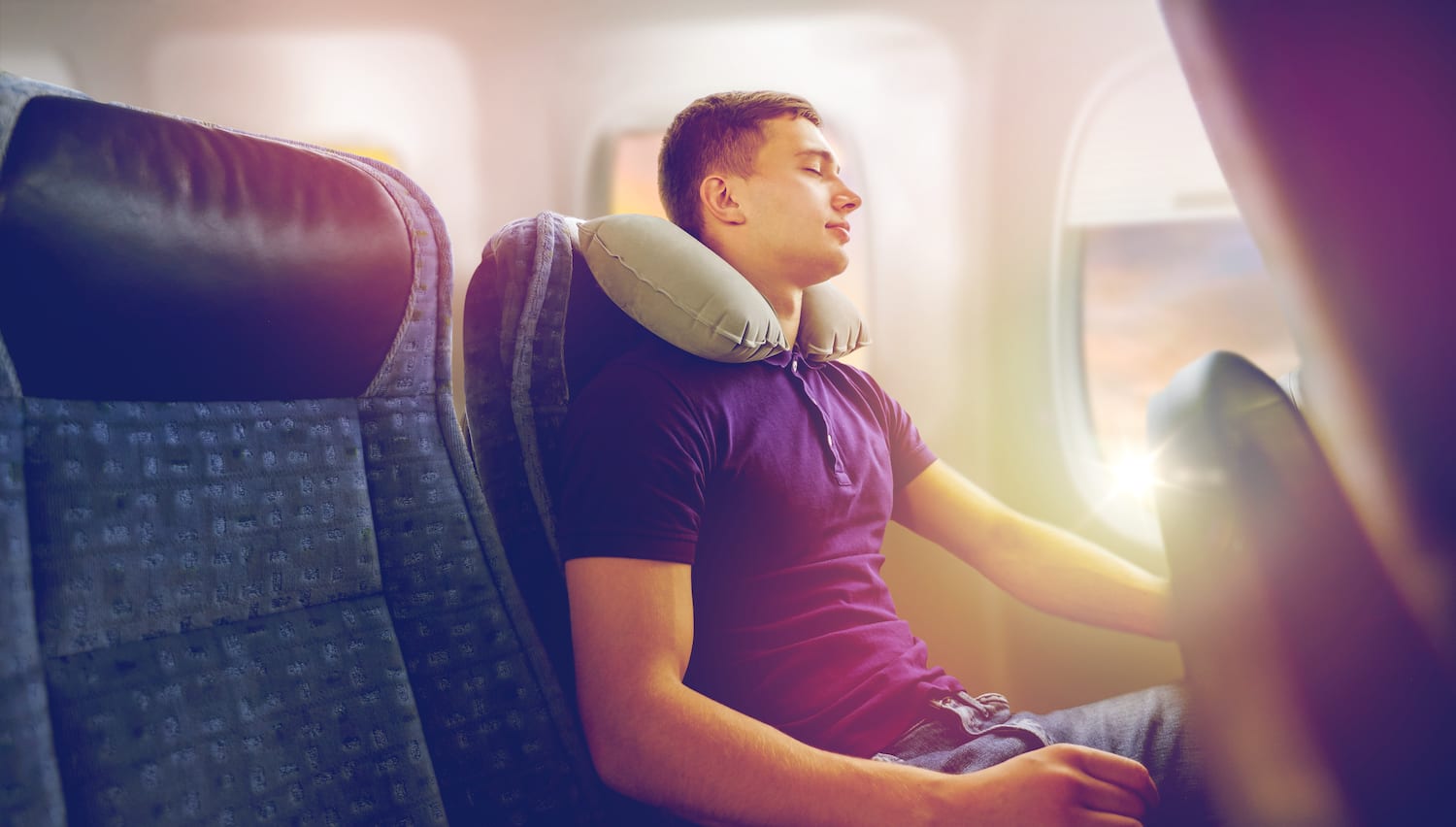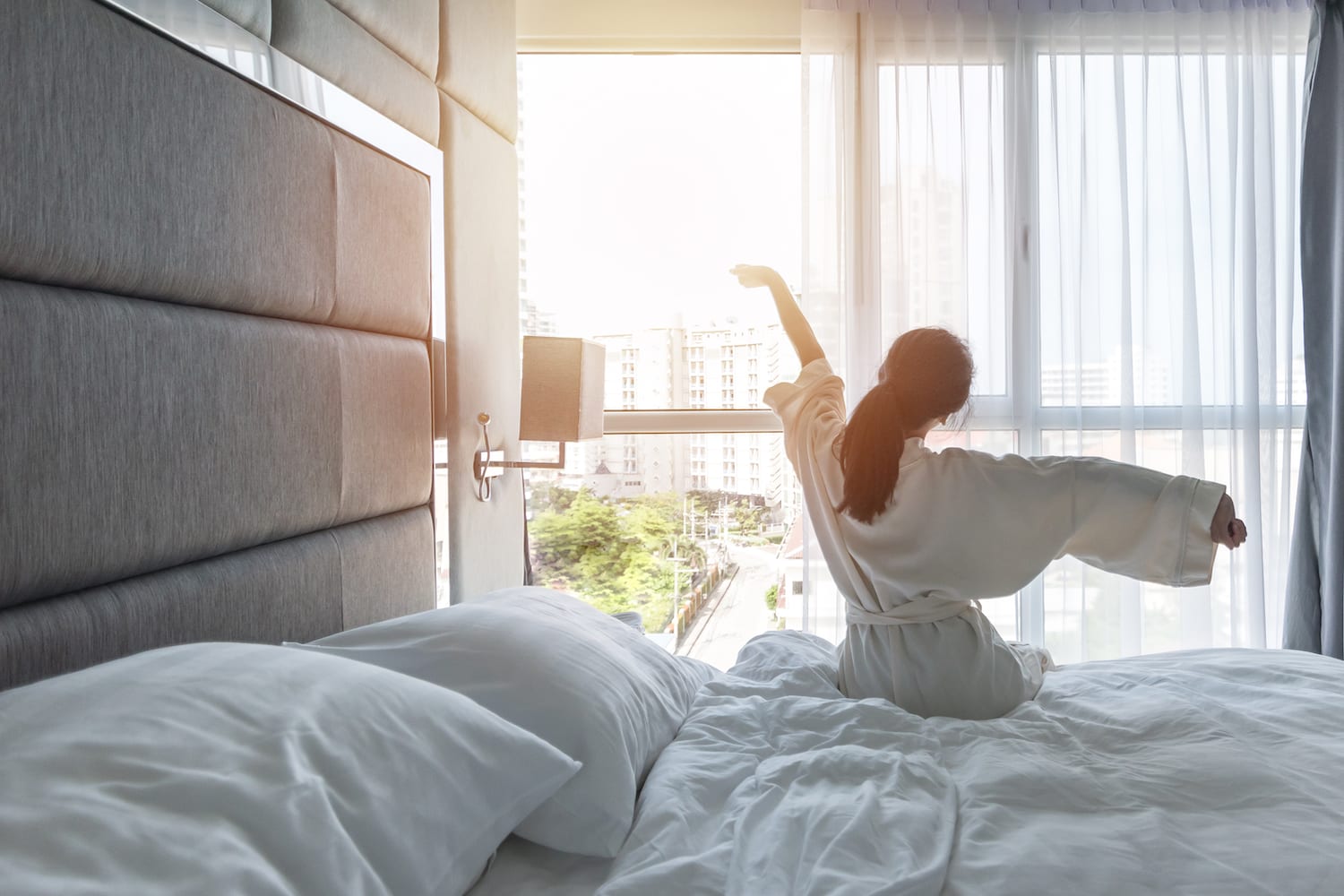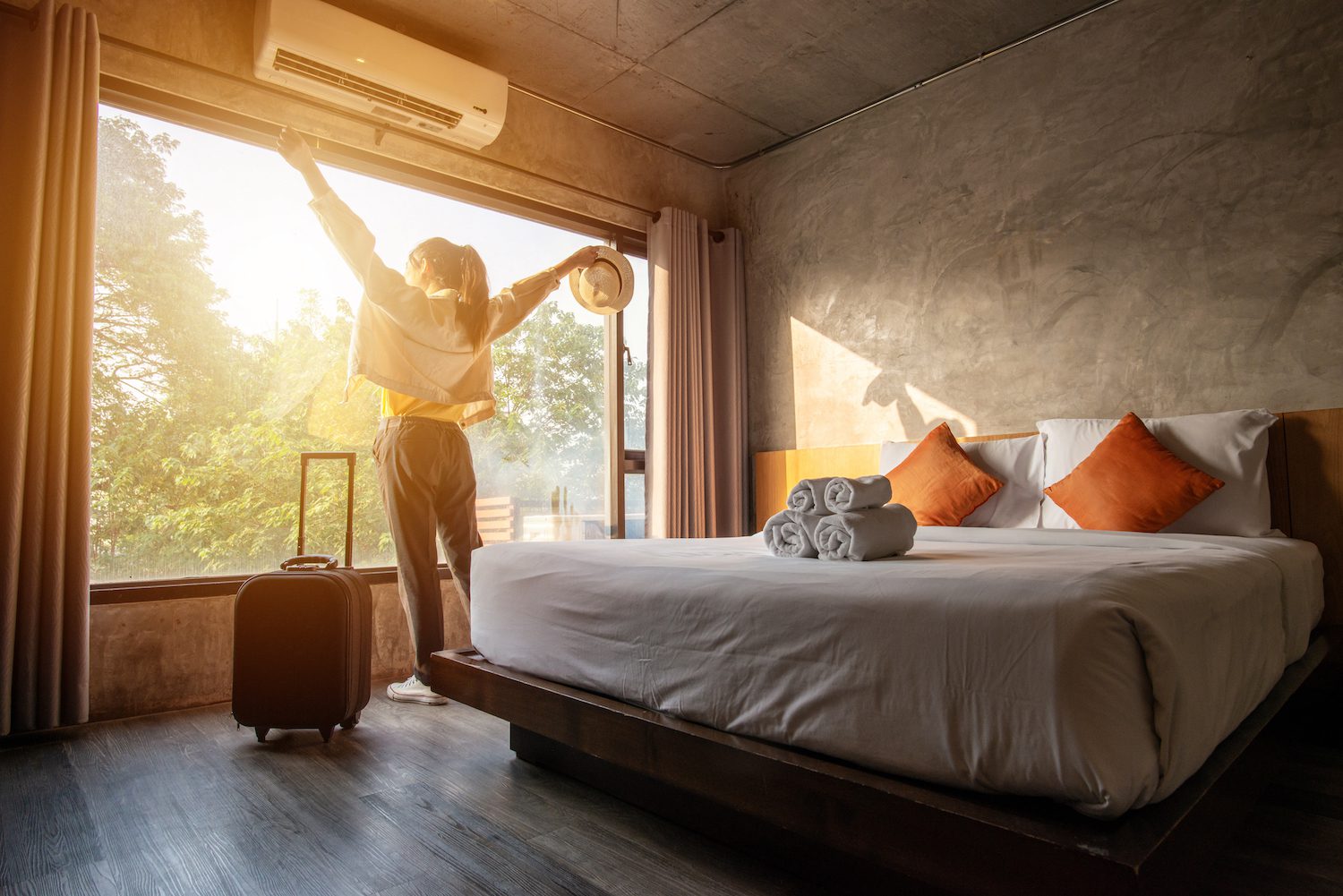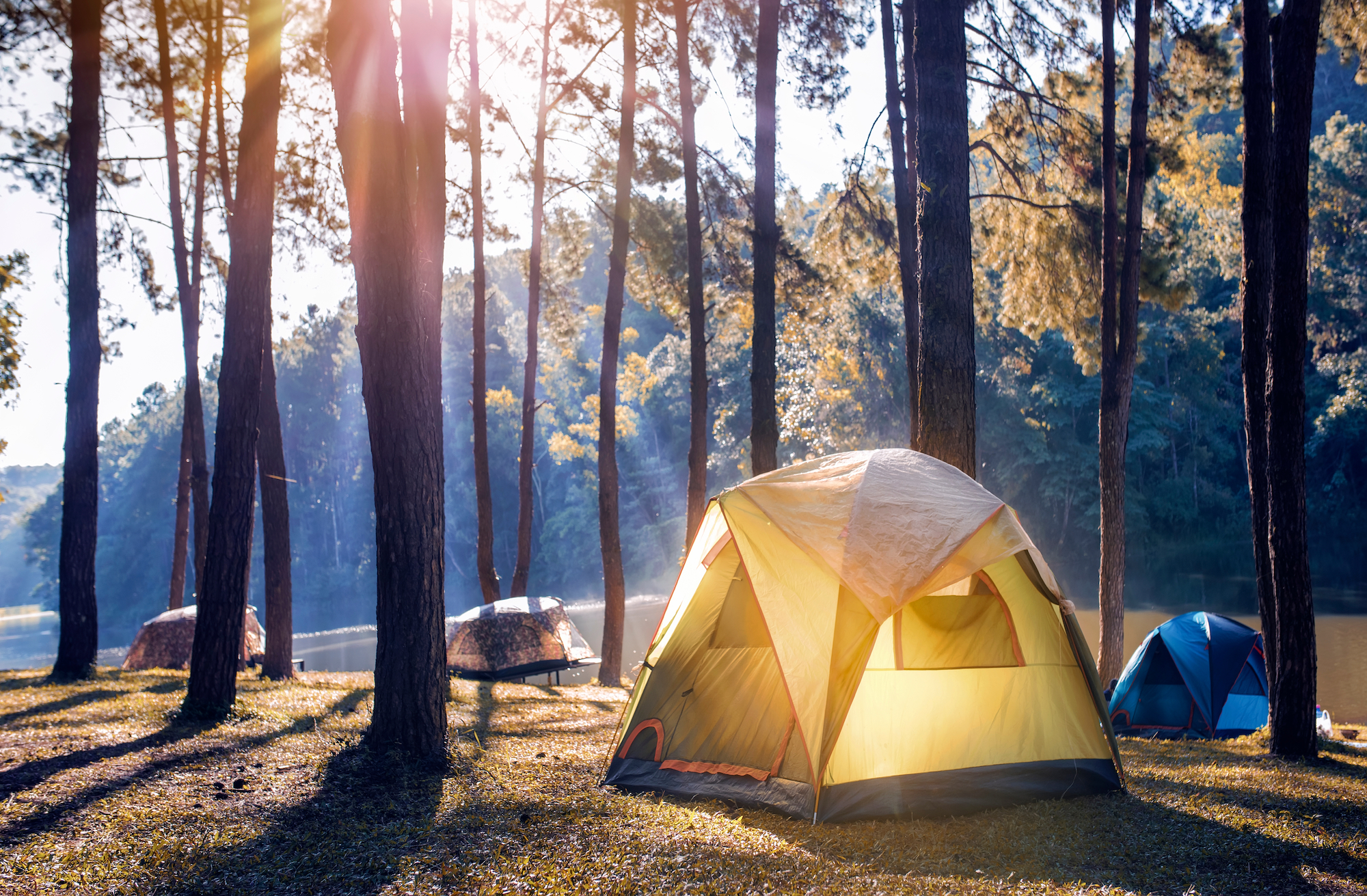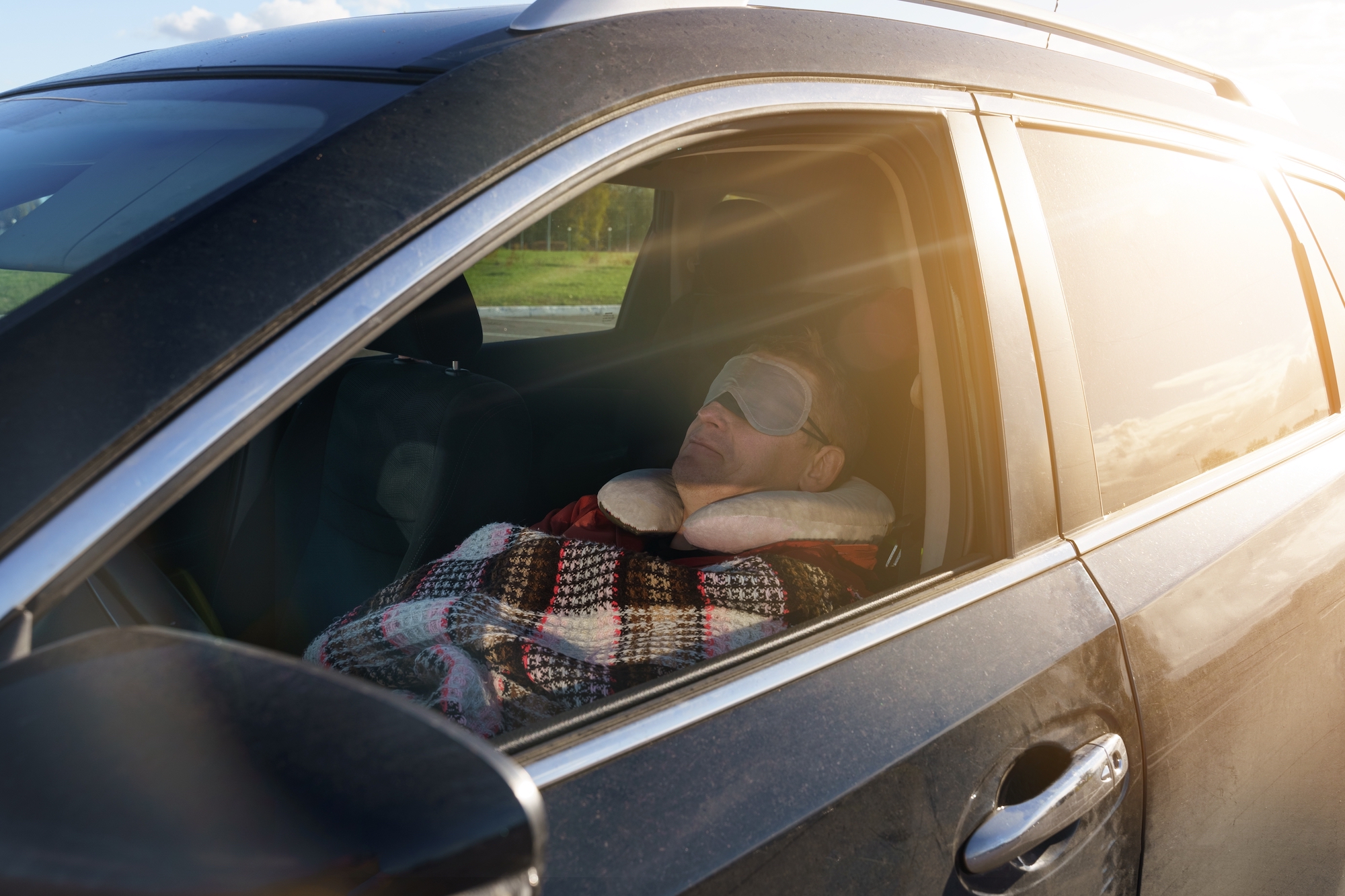When you buy through our links, we may earn a commission. Products or services may be offered by an affiliated entity. Learn more.
Travel and Sleep
For many people, travel is one of the joys of life. For others, it’s a core part of their work. Regardless of why you travel, good sleep promotes wellness that lets you get the most out of any trip.
Despite the importance of quality rest, it’s common to struggle with sleep when traveling. Poor sleep on a trip can have many causes, but concrete steps can improve sleep both in transit and during the rest of your trip.
How Can Travel Disrupt Your Sleep?
While travel can lead to new and exciting experiences, it also brings potential downsides. Many people find that they can’t sleep when traveling, making it harder to fully enjoy their trip.
Travel Fatigue
Travel can bring both physical and mental stress, which may lead to travel fatigue. Symptoms of travel fatigue include exhaustion, headaches, sleep loss, and other types of discomfort.
Numerous aspects of a trip can contribute to travel fatigue:
- Fear of flying or other types of travel.
- Anxiety about problems arising during a trip.
- Stress associated with packing, arriving on time, and other logistics.
- Motion sickness.
- Lengthy travel days.
- Delays or interruptions to the itinerary.
- Inability to sleep while traveling, such as while sitting upright in a plane, train, or car.
- Pressurized airplane cabins that can contribute to dehydration, bloating, constipation, and respiratory tract infections.
- Altered food and drink consumption while in transit, including increased intake of alcohol and caffeine.
- Extended periods in a seated position, which can cause leg swelling, stiffness, and reduced physical activity.
Travel fatigue can occur during travel of almost any type and length, and it may exacerbate underlying health conditions.
Jet Lag
Jet lag is a sleep disorder that can occur after long-distance flights that cross three or more time zones. Upon arrival, a person’s circadian rhythm is still anchored in their home time zone, creating a misalignment with the local time at their destination.
Difficulty sleeping is a leading symptom of jet lag. Other symptoms include impaired physical or mental performance, daytime sleepiness and poor concentration, gastrointestinal problems, impaired immune function, and overall malaise, among others. Jet lag can ruin vacations and for business travelers, result in lost productivity and poor work performance.
Jet lag normally lasts for a few days but can persist for up to a few weeks until a person’s circadian rhythm becomes synchronized with local time. It takes about one day to shift by one time zone both on the way there and the
way back. For about 75% of people, jet lag is more severe when traveling east, but a quarter of people find it harder to travel west. The severity of jet lag increases with the number of time zones crossed.
Schedule Changes
Even without the circadian rhythm disruption of jet lag, alterations to a person’s daily schedule, including their bedtime, can contribute to sleep problems. Going to bed three hours later than normal causes the same problems as traveling across three time zones.
Interruptions to a normal sleep routine may make it harder to fall asleep or sleep through the night.
Especially on vacations and business trips, it’s common for people to want to overload their daily agenda and squeeze the most into each day. This may lead to overstimulation and/or insufficient time budgeted for sleep.
New or Uncomfortable Sleep Settings
Studies have repeatedly demonstrated that people tend to have worse sleep the first night that they spend in an unfamiliar environment. This was first detected in sleep clinics where researchers discovered a consistent “first-night effect.”
This effect does not appear to be limited to sleep clinics. Further research has found that first-night sleep quality was reduced even in an inviting setting like a spa resort. Some experts believe that this is an evolutionary survival strategy that keeps part of the brain active when initially sleeping in a new place.
Sleep usually improves after the first night, but this may not always be the case when traveling. If accommodations have an uncomfortable mattress or excess light or noise, it may be hard to get uninterrupted rest.
Changes to Diet and Exercise Routines
Travel is frequently treated as a welcome break from normal routines, but changes to established habits may play a role in sleep disruptions.
Travelers may be inclined to drink more alcohol or eat heavier meals than normal, both of which can have negative effects on sleep patterns. Regular exercise, which can contribute to consistent sleep, may also be reduced or modified while traveling.
What Are the Consequences of Disrupted Travel During Sleep?
Short-term lack of sleep can harm physical, mental, and emotional health. Sleep deprivation can slow your thinking, make you drowsy during the day, cause irritability, and decrease your energy level. Insufficient sleep can heighten the risk of accidents, which may be especially concerning during road trips.
These consequences detract from quality trips. Without enough sleep, business travelers and athletes may not perform optimally, and pleasure-seekers may get less enjoyment out of a vacation.
While travel-based sleep disturbances are normally a short-term concern, they may become chronic for people who are frequent travelers or who are otherwise at risk for sleeping problems. Long-term sleep loss and circadian disruption can increase the risk of heart disease, obesity, diabetes, depression and some cancers.
Vacation Travel
The summer is a key time for many families to travel. As COVID restrictions are relaxing across the United States, the demand for travel is surging to levels that near those prior to the pandemic. In fact, two-thirds of American adults are now comfortable returning to their normal routine and 62% feel comfortable taking a vacation. This is a significant increase from 2020, when the U.S. travel economy lost $645 billion because of the COVID-19 pandemic.
Thousands of airline workers were laid off during the pandemic, so airports might be feeling more chaotic than you remember. Additionally, wildfires in the West and severe weather in other parts of the country are resulting in delayed or cancelled flights.
Vacation travel can be particularly stressful, especially when done with small children. Follow some of our tips below to ease the stress of this travel.
Combating Vacation Travel Stress
- If you’re traveling with your family, it is important to keep your children on a consistent sleep schedule, despite the disrupted schedule.
- It can be tempting to order beer or wine during your flight, but altitude can worsen the effects of alcohol, and make it harder to overcome travel fatigue or jet lag.
- If you’re traveling to a wildfire-heavy area during wildfire season, take the protective measures necessary to ensure your sleep isn’t affected by toxic particles in the air. Ensure the room where you’ll be sleeping is also at an appropriate temperature.
- Count on spending more time in the airport than usual. In the wake of the pandemic, summer vacation travelers are experiencing increased lines and more delays due to short-staffing and a sudden spike in demand for travel. Be sure to account for a few extra hours of lost sleep during travel, and have a plan for when you arrive in order to achieve adequate sleep.
How to Sleep Better When Traveling
No matter whether you’re traveling for work or play, sleeping well can help you have a more successful and enjoyable trip. While there’s no foolproof plan that works for everyone, there are many steps you can take before and during travel to reduce sleep disruptions.

Still have questions? Ask our community!
Join our Sleep Care Community — a trusted hub of sleep health professionals, product specialists, and people just like you. Whether you need expert sleep advice for your insomnia or you’re searching for the perfect mattress, we’ve got you covered. Get personalized guidance from the experts who know sleep best.
References
12 Sources
-
Waterhouse, J., Reilly, T., & Edwards, B. (2004). The stress of travel. Journal of sports sciences, 22(10), 946–966.
http://www.tandfonline.com/doi/abs/10.1080/02640410400000264 -
Ambesh, P., Shetty, V., Ambesh, S., Gupta, S. S., Kamholz, S., & Wolf, L. (2018). Jet lag: Heuristics and therapeutics. Journal of Family Medicine and Primary Care, 7(3), 507–510.
https://pubmed.ncbi.nlm.nih.gov/30112298/ -
Zubac, D., Buoite Stella, A., & Morrison, S. A. (2020). Up in the Air: Evidence of Dehydration Risk and Long-Haul Flight on Athletic Performance. Nutrients, 12(9), 2574.
https://pubmed.ncbi.nlm.nih.gov/32854320/ -
Chan, V., & Allman-Farinelli, M. (2020). Efficacy of functional foods, beverages, and supplements claiming to alleviate air travel symptoms: Protocol for a systematic review. JMIR Research Protocols, 9(3), e16155.
https://pubmed.ncbi.nlm.nih.gov/32217495/ -
Centers for Disease Control and Prevention (2019, June 24). CDC Yellow Book 2020: Health Information for International Travel. Oxford University Press., Retrieved January 27, 2021 from
https://wwwnc.cdc.gov/travel/yellowbook/2020/travel-by-air-land-sea/jet-lag -
American Academy of Sleep Medicine. (2014). The International Classification of Sleep Disorders – Third Edition (ICSD-3). Darien, IL.
https://aasm.org/ -
Czeisler, C. A., Duffy, J. F., Shanahan, T. L., Brown, E. N., Mitchell, J. F., Rimmer, D. W., Ronda, J. M., Silva, E. J., Allan, J. S., Emens, J. S., Dijk, D. J., & Kronauer, R. E. (1999). Stability, precision, and near-24-hour period of the human circadian pacemaker. Science (New York, N.Y.), 284(5423), 2177–2181.
https://pubmed.ncbi.nlm.nih.gov/10381883/ -
Eastman, C. I., & Burgess, H. J. (2009). How to travel the world without jet lag. Sleep Medicine Clinics, 4(2), 241–255.
https://pubmed.ncbi.nlm.nih.gov/20204161/ -
Roenneberg T. How can social jetlag affect health? Nat Rev Endocrinol. 2023 Jul;19(7):383-384
https://pubmed.ncbi.nlm.nih.gov/37221400/ -
Blasche, G. W., Weissensteiner, K., & Marktl, W. (2012). Travel-related change of residence leads to a transitory stress reaction in humans. Journal of travel medicine, 19(4), 243–249.
https://academic.oup.com/jtm/article-lookup/doi/10.1111/j.1708-8305.2012.00624.x -
Tamaki, M., Bang, J. W., Watanabe, T., & Sasaki, Y. (2016). Night Watch in One Brain Hemisphere during Sleep Associated with the First-Night Effect in Humans. Current biology : CB, 26(9), 1190–1194. https://doi.org/10.1016/j.cub.2016.02.063
https://pubmed.ncbi.nlm.nih.gov/27112296/ -
Kline C. E. (2014). The bidirectional relationship between exercise and sleep: Implications for exercise adherence and sleep improvement. American journal of lifestyle medicine, 8(6), 375–379.
https://pubmed.ncbi.nlm.nih.gov/25729341/




